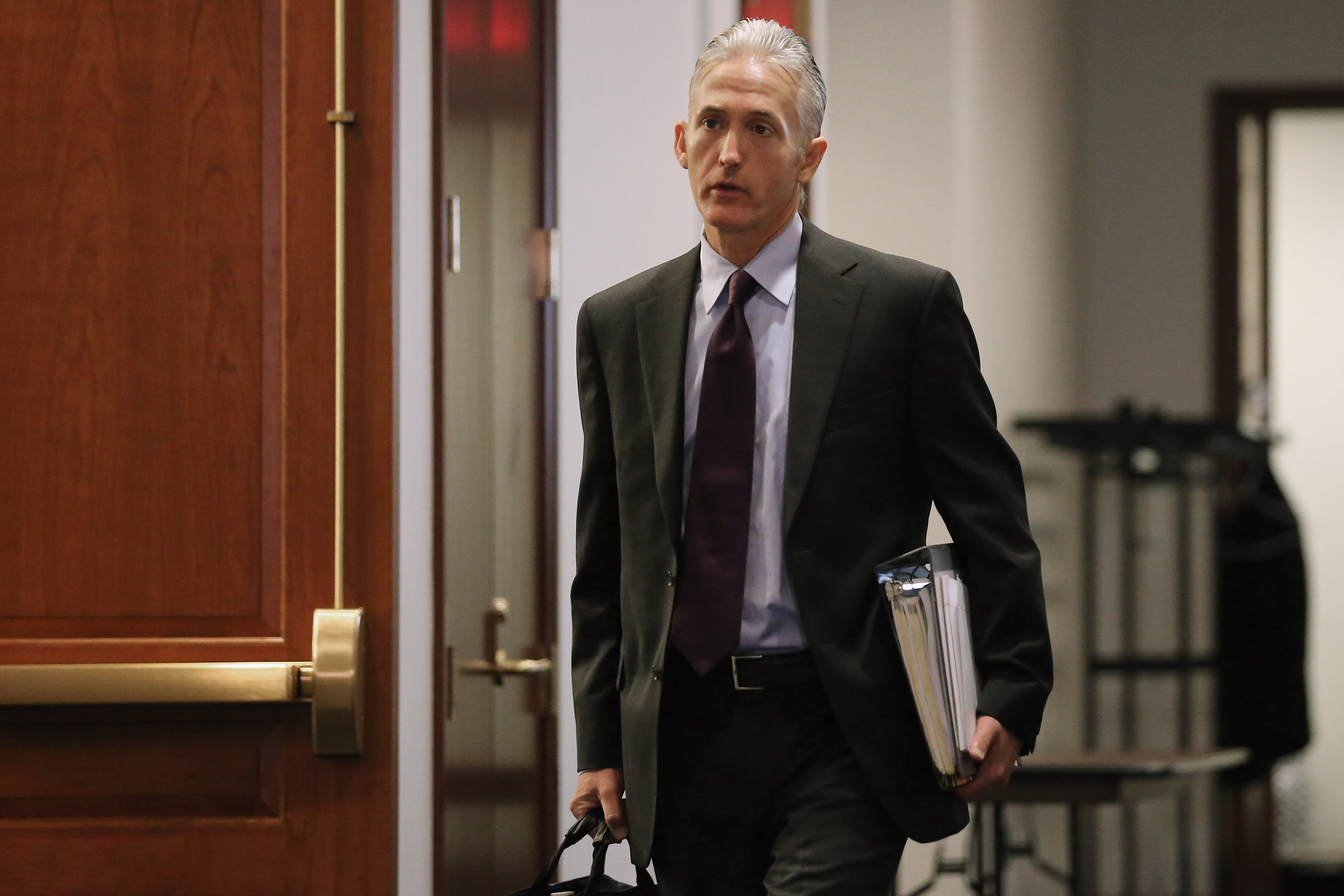House Benghazi panel's GOP staffers allegedly have gun club, wine glasses that say 'Glacial Pace'


A free daily email with the biggest news stories of the day – and the best features from TheWeek.com
You are now subscribed
Your newsletter sign-up was successful
Rep. Trey Gowdy (R-S.C.), the chairman of the House Special Committee on Benghazi, told The New York Times that he had warned House Speaker John Boehner last spring that the shift to investigating Hillary Clinton's emails would distract from his committee's investigation into the Sept. 11, 2012, attacks on a diplomatic compound in eastern Libya that resulted in four Americans killed. Boehner declined to give the email issue to another committee, because he "had long been suspicious of the administration's handling of the attacks," believed "Clinton's emails gave him a way to keep the issue alive and to cause political problems for her campaign," and "thought that the task was too delicate to entrust to others and that it should remain with Mr. Gowdy," The Times reports, citing unidentified "senior Republican officials."
And documents reviewed by the newspaper indicated that the committee did sharply shift its focus after the revelations that Clinton used only a private email account while secretary of state, dropping inquiries with the Pentagon and White House and focusing almost exclusively on the State Department. It has been slow work, according to Air Force Reserve Maj. Bradley Podliska, a former investigator for the GOP staff who was fired in June and has accused House Republicans of focusing on Clinton rather than the Benghazi attacks:
With the slow progress, members have engaged in social activities like a wine club nicknamed "Wine Wednesdays," drinking from glasses imprinted with the words "Glacial Pace," a dig at Rep. Elijah E. Cummings, Democrat of Maryland and the committee's ranking member, Major Podliska said. Mr. Cummings used the term to question the speed of the committee's work. At one point, several Republican staff members formed a gun-buying club and discussed in the committee's conference room the 9-millimeter Glock handguns they intended to buy and what type of monograms they would inscribe on them, Major Podliska said. [The New York Times]
On Sunday, committee spokesman Jamal Ware defended the focus on Clinton's emails, saying her "unusual email arrangement with herself has only made it more difficult for the committee to ensure the public record with respect to Libya and Benghazi is complete."
The Week
Escape your echo chamber. Get the facts behind the news, plus analysis from multiple perspectives.

Sign up for The Week's Free Newsletters
From our morning news briefing to a weekly Good News Newsletter, get the best of The Week delivered directly to your inbox.
From our morning news briefing to a weekly Good News Newsletter, get the best of The Week delivered directly to your inbox.
The House Benghazi Committee's inquiry — one of eight congressional panels that have looked into the Benghazi attacks — has already lasted longer than the Watergate investigation and cost taxpayers $4.5 million in 17 months. It hasn't, however, lasted as long or been as costly as the last major federal investigation of the Clintons, by independent counsel Kenneth Starr, which lasted 4.5 years and cost at least $39.2 million, ending in the first impeachment of a president since Andrew Johnson — over an issue totally unrelated to the Whitewater real estate deal — and no criminal charges against either Bill or Hillary Clinton.
A free daily email with the biggest news stories of the day – and the best features from TheWeek.com
Peter has worked as a news and culture writer and editor at The Week since the site's launch in 2008. He covers politics, world affairs, religion and cultural currents. His journalism career began as a copy editor at a financial newswire and has included editorial positions at The New York Times Magazine, Facts on File, and Oregon State University.
